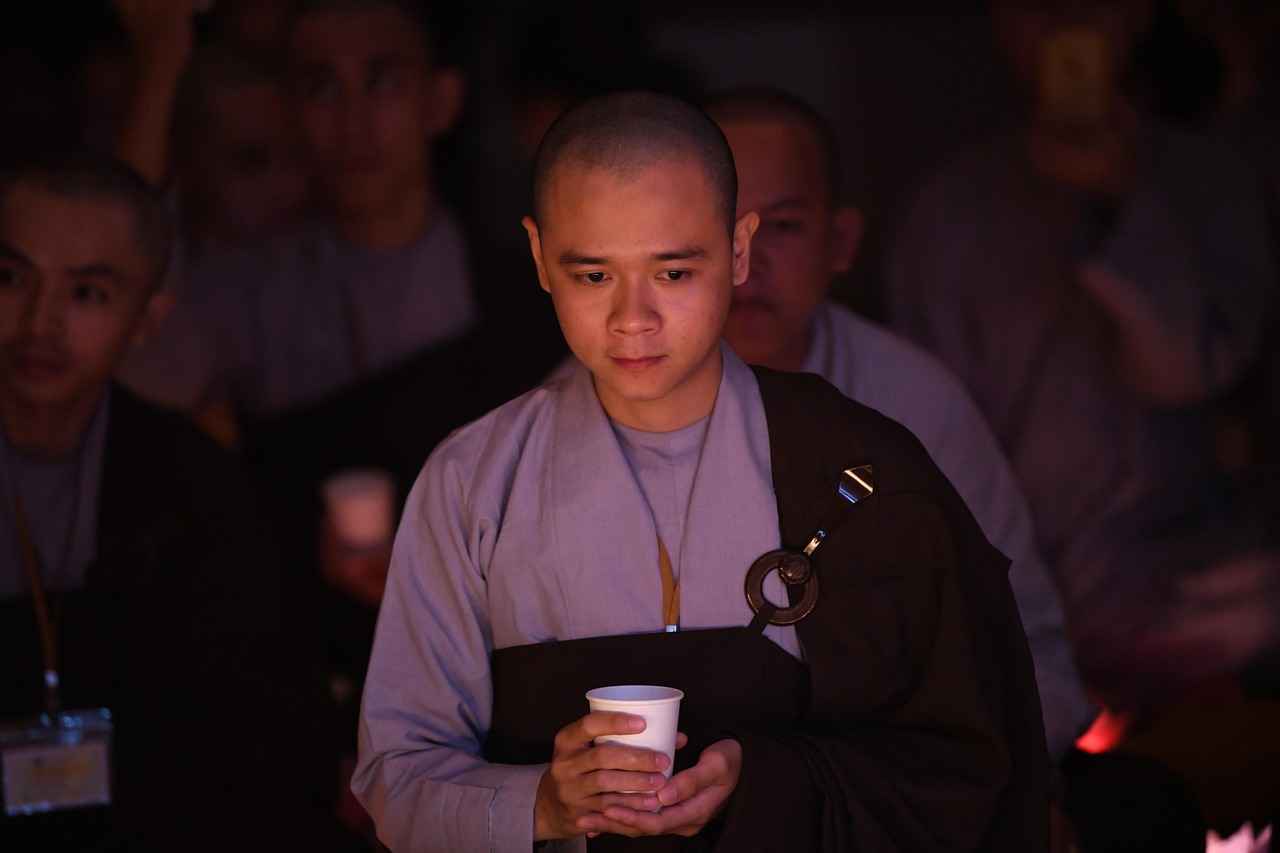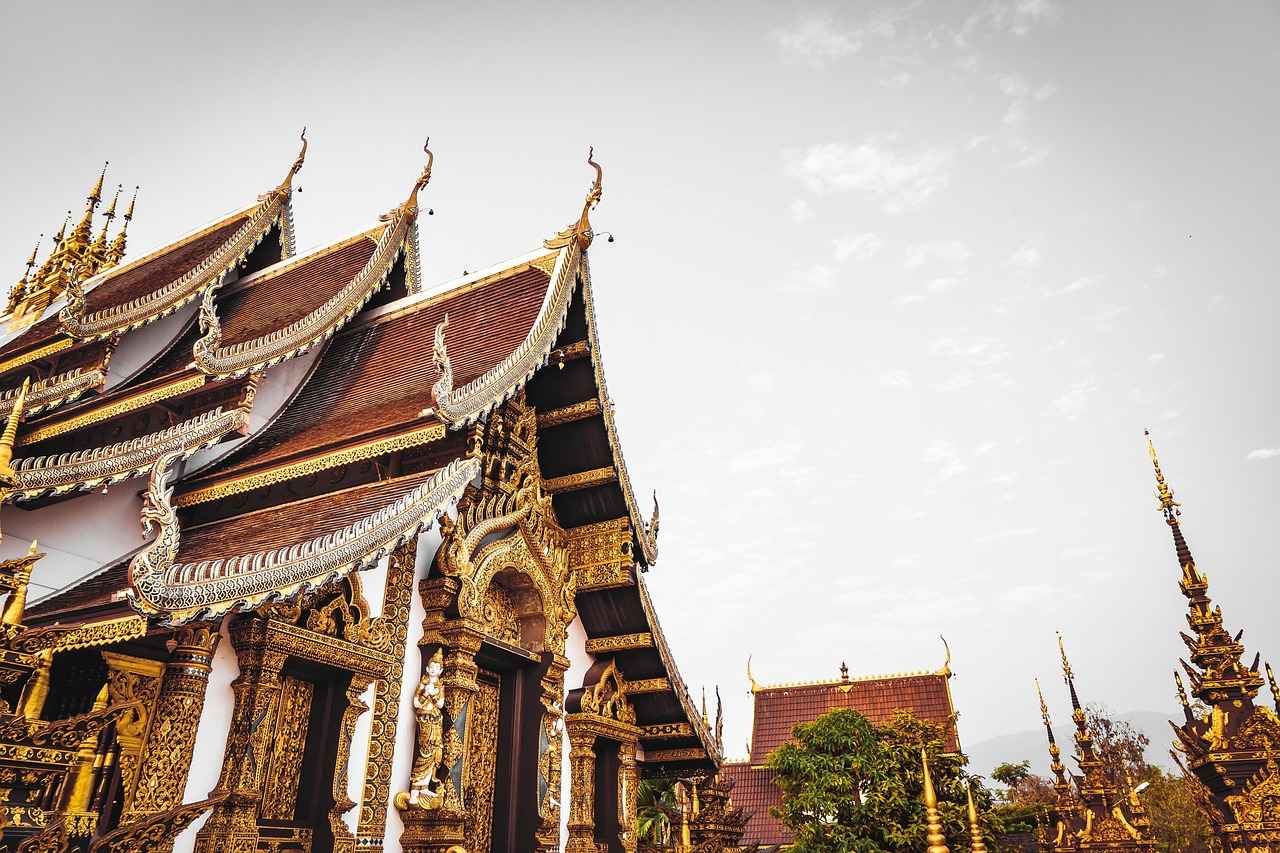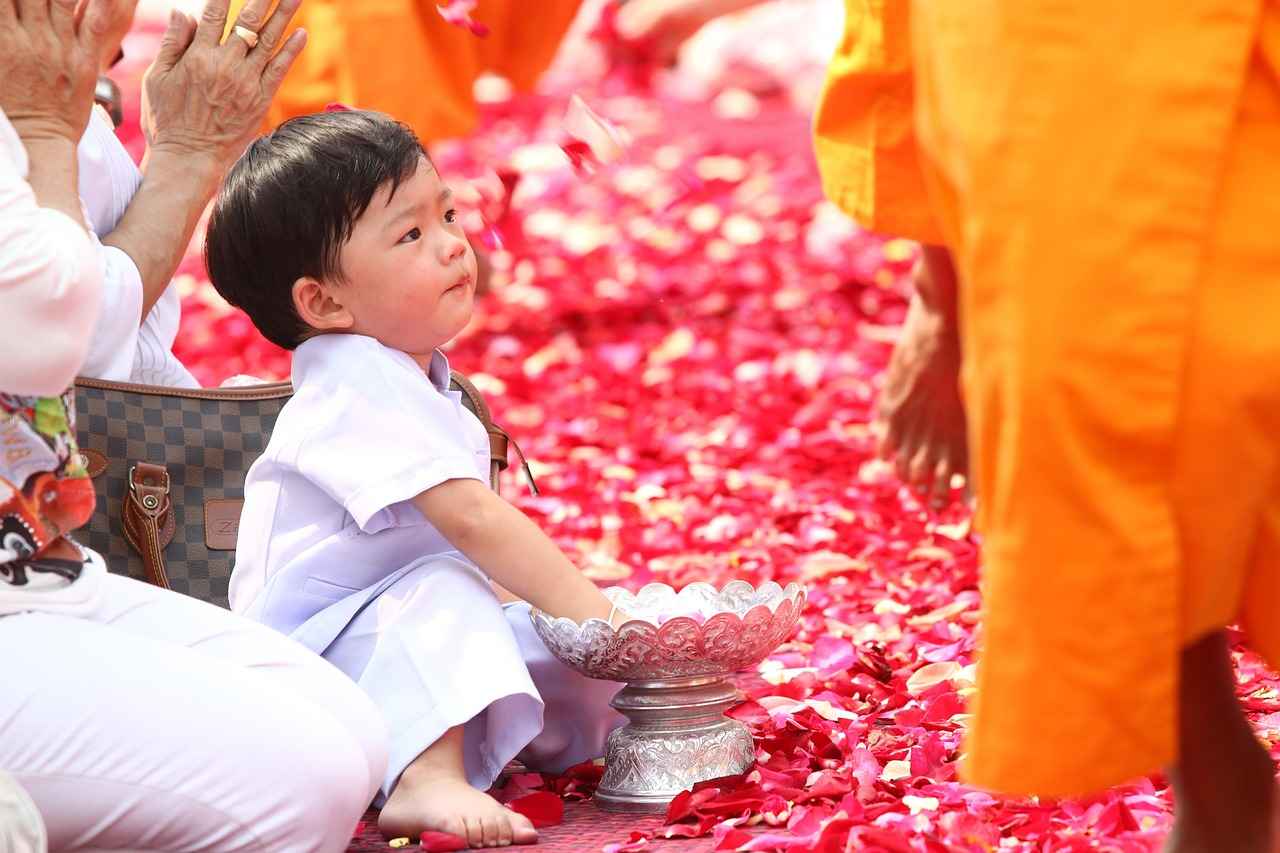This article delves into the profound impact of Buddhist themes and philosophies on popular anime, with a particular emphasis on Dragon Ball. The series not only entertains but also weaves in deep spiritual concepts that resonate with audiences worldwide.
Buddhism and Its Core Concepts
To appreciate the narrative depth of Dragon Ball, it is essential to understand some of the foundational ideas of Buddhism. Concepts such as karma, reincarnation, and the pursuit of enlightenment serve as a backdrop for the character development and overarching narratives within the series. These elements create a rich tapestry that enhances the viewing experience.
The Journey of Self-Improvement in Dragon Ball
The protagonist, Goku, embodies the Buddhist quest for self-improvement, showcasing the importance of personal growth and overcoming challenges. His journey reflects the Buddhist belief that life is a continuous path towards becoming a better version of oneself.
The Role of Karma in Dragon Ball
Karma significantly shapes character arcs in Dragon Ball, illustrating the idea that every action has consequences. This principle aligns closely with Buddhist philosophy, emphasizing moral responsibility and the impact of past actions on future outcomes.
Character Development Through Karma
Characters like Vegeta exemplify how their past actions influence their growth, demonstrating the Buddhist understanding of karmic cycles. The series illustrates that recognition of one’s mistakes is crucial for personal evolution.
Lessons Learned and Redemption
Dragon Ball often emphasizes redemption arcs, mirroring Buddhist beliefs in the potential for change and enlightenment through understanding one’s past. This narrative approach encourages viewers to reflect on their own lives and choices.
Reincarnation and Transformation Themes
Reincarnation is a recurring motif in Dragon Ball, paralleling Buddhist beliefs and highlighting the cyclical nature of life. The characters’ transformations symbolize spiritual evolution and the quest for higher states of existence.
The Symbolism of Enlightenment in Dragon Ball
The quest for enlightenment is vividly depicted through the journeys of various characters, showcasing their aspirations to transcend limitations. This mirrors the Buddhist path toward achieving Nirvana.
Goku’s Ascension to Higher Forms
Goku’s transformations, such as Super Saiyan, symbolize the pursuit of higher states of being, akin to the Buddhist journey toward spiritual awakening. Each transformation represents a significant step in his quest for self-realization.
Mastery and Wisdom in Training
Training under mentors like Master Roshi reflects the importance of wisdom and guidance in achieving enlightenment, a core aspect of both Buddhism and the narrative structure of the anime.
Conclusion: The Lasting Impact of Buddhism in Anime
The integration of Buddhist themes in Dragon Ball enriches its storytelling and serves as a bridge connecting Eastern philosophies with global audiences. This influence not only enhances the series but also impacts the broader anime landscape, inviting viewers to explore deeper meanings behind their favorite shows.

Buddhism and Its Core Concepts
Buddhism is a spiritual tradition that encompasses a variety of beliefs and practices largely based on the teachings of Siddhartha Gautama, known as the Buddha. At its core, Buddhism emphasizes the importance of understanding the nature of suffering, the impermanence of life, and the pursuit of enlightenment. To grasp the influence of Buddhism on various cultural narratives, particularly in the realm of anime, it is essential to explore some of its foundational concepts: karma, reincarnation, and enlightenment.
Karma is a fundamental principle in Buddhism that refers to the law of moral causation. It posits that every action has consequences, which can manifest in this life or future ones. This concept is vividly illustrated in many anime narratives, including Dragon Ball, where characters face the repercussions of their actions, leading to significant character development and moral lessons.
Reincarnation, another key idea, suggests that beings undergo a cycle of birth, death, and rebirth. This cyclical nature of existence is mirrored in the character arcs of Dragon Ball, where characters are often reborn with new abilities or insights, reflecting their past lives and experiences. This theme not only enriches the narrative but also aligns with the Buddhist view of spiritual evolution.
Lastly, the pursuit of enlightenment in Buddhism represents the ultimate goal of transcending suffering and ignorance. In Dragon Ball, characters like Goku embark on journeys that symbolize this quest for higher understanding and self-realization. Their transformations and growth mirror the spiritual awakening sought in Buddhist teachings.
By examining these core concepts, one can appreciate how Buddhism profoundly influences the storytelling and character development in anime, particularly in series like Dragon Ball. This exploration not only highlights the depth of the narratives but also serves to connect audiences with Eastern philosophies, enriching their viewing experience.

The Journey of Self-Improvement in Dragon Ball
In the world of Dragon Ball, the journey of self-improvement is not just a personal endeavor for the protagonist, Goku; it is a central theme that resonates throughout the series. This journey reflects the Buddhist philosophy of personal growth, emphasizing the importance of overcoming obstacles and striving for enlightenment.
Goku’s character embodies the essence of relentless determination and the pursuit of excellence. From his humble beginnings as a young boy training under Master Roshi to his ascension as one of the universe’s most powerful warriors, Goku’s evolution is a testament to the idea that self-improvement is a lifelong journey. Each battle he faces serves as a metaphor for the struggles one encounters on the path to enlightenment.
Moreover, Goku’s transformations, such as achieving the Super Saiyan form, symbolize significant milestones in this journey. These transformations are not merely physical; they represent profound shifts in Goku’s mindset and abilities, mirroring the Buddhist concept of transcending one’s limitations. As Goku confronts formidable foes, he learns valuable lessons about humility, resilience, and the interconnectedness of all beings.
- Personal Growth: Goku’s journey illustrates that true strength comes from within and is achieved through perseverance.
- Overcoming Obstacles: Each adversary Goku faces is a reflection of the challenges one must overcome in life.
- Spiritual Evolution: Goku’s quest for greater power aligns with the Buddhist pursuit of spiritual awakening and understanding.
In conclusion, the journey of self-improvement in Dragon Ball serves not only as entertainment but also as a profound exploration of Buddhist principles. Goku’s experiences remind audiences of the importance of growth, resilience, and the continuous pursuit of higher states of being.
The Role of Karma in Dragon Ball
Karma, a fundamental concept in Buddhism, significantly influences the narrative and character development in Dragon Ball. This principle emphasizes that every action has a corresponding consequence, shaping not only the characters’ destinies but also the overarching themes of the series.
In Dragon Ball, the characters are often faced with the results of their past actions. For instance, the character Vegeta serves as a prime example of how karma can lead to profound transformation. Initially portrayed as a ruthless antagonist, Vegeta’s journey towards redemption illustrates the Buddhist understanding of karmic cycles. His evolution from villain to hero highlights the potential for personal growth and moral responsibility.
Moreover, the series frequently depicts characters grappling with their past mistakes. This theme of redemption aligns closely with Buddhist beliefs, which emphasize the possibility of change through self-awareness and understanding. Characters like Piccolo also experience significant growth, showcasing how the recognition of one’s past can lead to a more enlightened state.
Additionally, the narrative structure of Dragon Ball often includes redemptive arcs, reinforcing the idea that individuals can learn from their experiences and strive for a better path. This mirrors the Buddhist concept of enlightenment, where understanding one’s actions is crucial for spiritual growth.
In conclusion, the role of karma in Dragon Ball not only enriches the character arcs but also serves as a reminder of the importance of our actions and their consequences. By integrating these themes, the series not only entertains but also imparts valuable life lessons, resonating with audiences worldwide.
Character Development Through Karma
In the world of Dragon Ball, the intricate tapestry of character development is deeply intertwined with the concept of karma. This principle, rooted in Buddhist philosophy, posits that every action has consequences, shaping the destinies of individuals. Characters like Vegeta exemplify this notion, as their past actions significantly influence their growth and transformation throughout the series.
Initially introduced as a ruthless antagonist, Vegeta’s journey is marked by his relentless pursuit of power and dominance. However, as the narrative unfolds, we witness a profound evolution in his character. His early choices, driven by pride and a desire for superiority, lead to numerous conflicts and challenges. Yet, through these experiences, Vegeta begins to confront his own flaws and the repercussions of his actions. This aligns with the Buddhist understanding of karmic cycles, where individuals are encouraged to reflect on their past to foster personal growth.
Furthermore, Vegeta’s path to redemption is a compelling aspect of his character arc. He grapples with his previous misdeeds, seeking to atone for his past while striving to protect those he once viewed as inferior. This transformation illustrates the potential for change and enlightenment, core tenets of Buddhism. The series effectively showcases that understanding one’s past mistakes is essential for achieving true growth.
As Vegeta continues to evolve, he embodies the idea that individuals are not solely defined by their past actions but can strive for a better future. This narrative not only enriches Vegeta’s character but also serves as a broader commentary on the importance of self-awareness and moral responsibility. Through his journey, Dragon Ball emphasizes that redemption is possible, reinforcing the belief that the path to enlightenment is paved with personal accountability and growth.
Lessons Learned and Redemption
The narrative of Dragon Ball is rich with themes of redemption and personal growth, echoing the profound principles found in Buddhism. Throughout the series, characters face their past mistakes, striving not only to rectify their actions but also to achieve a form of enlightenment. This journey is pivotal, illustrating that understanding one’s shortcomings is essential for personal transformation.
One of the most compelling examples is the character of Vegeta. Initially introduced as a ruthless antagonist, Vegeta’s journey toward redemption showcases a powerful narrative arc. His evolution from a villain to a hero emphasizes that even those with a dark past can change and seek atonement. This mirrors the Buddhist belief that everyone has the potential for change, regardless of their past actions.
Moreover, the series often presents characters who confront their previous choices. For instance, Piccolo transforms from a foe into a mentor, demonstrating that self-reflection and the desire to improve can lead to significant growth. This aligns with the Buddhist concept of karma, where one’s actions directly influence their future, reinforcing the idea that redemption is not just about forgiveness but also about taking responsibility for one’s actions.
In essence, the redemption arcs in Dragon Ball serve as a microcosm of the Buddhist path, illustrating how understanding past mistakes can lead to a brighter future. This thematic depth not only enriches the characters but also resonates with audiences, encouraging them to reflect on their own journeys toward self-improvement and understanding.
Reincarnation and Transformation Themes
Reincarnation and transformation are pivotal themes within the Dragon Ball series, deeply intertwined with the philosophical underpinnings of Buddhism. In this context, reincarnation is not merely a plot device but a reflection of the cyclical nature of life and the continuous journey of spiritual evolution.
In Dragon Ball, characters often experience death and rebirth, mirroring the Buddhist belief in the cycle of samsara. This cycle emphasizes that life is a series of births, deaths, and rebirths, where each incarnation offers a chance for growth and learning. For instance, the character of Goku has died multiple times throughout the series, only to return stronger and more enlightened, showcasing the idea that each life is an opportunity for self-improvement.
- Goku’s Transformations: Each transformation, such as Super Saiyan, symbolizes a significant leap in his abilities and understanding, akin to the spiritual awakenings described in Buddhist texts.
- Vegeta’s Redemption: Initially portrayed as a villain, Vegeta’s journey reflects the potential for change and growth, aligning with the Buddhist notion that one can overcome their past.
- Spiritual Guides: Characters like King Kai serve as mentors, guiding the protagonists through their spiritual journeys, much like a guru in Buddhism.
The series often emphasizes the importance of learning from past mistakes and using those lessons to evolve. This aligns with the Buddhist concept of karma, where actions in one life can influence future existences. As characters confront their pasts, they are given opportunities to grow, highlighting the transformative power of understanding and forgiveness.
Ultimately, the exploration of reincarnation and transformation in Dragon Ball serves as a profound commentary on the human experience, encouraging viewers to reflect on their own journeys of self-discovery and spiritual growth.

The Symbolism of Enlightenment in Dragon Ball
The journey toward enlightenment is a central theme in many narratives, and in Dragon Ball, this quest is vividly illustrated through the characters’ experiences. Each character’s path reflects a desire to transcend their limitations, which mirrors the Buddhist journey toward achieving Nirvana.
In Dragon Ball, the characters embark on profound journeys of self-discovery and growth. For instance, Goku’s evolution from a naive child to a powerful warrior is emblematic of the struggle for enlightenment. His numerous transformations, particularly the Super Saiyan forms, symbolize the quest for higher states of being. Each transformation represents not just an increase in power but also a deeper understanding of oneself and the universe.
- Goku’s Transformations: Each new form signifies a leap in personal growth, akin to the stages of enlightenment in Buddhism.
- Vegeta’s Redemption: Vegeta’s character arc showcases the potential for change and self-awareness, illustrating the Buddhist belief in overcoming one’s past.
- Training and Wisdom: The rigorous training under masters like Roshi emphasizes the importance of mentorship and wisdom in the pursuit of enlightenment.
Moreover, the series often highlights the idea of overcoming obstacles. Characters face numerous challenges that require them to confront their fears and limitations, much like the trials faced on the path to enlightenment in Buddhist teachings. This narrative structure not only engages viewers but also serves as a reflection of the internal struggles that accompany the journey toward self-improvement.
In conclusion, the symbolism of enlightenment in Dragon Ball is intricately woven into the characters’ journeys. Their aspirations to transcend limitations not only align with Buddhist philosophies but also resonate with audiences globally, making the series a profound exploration of personal growth and spiritual awakening.
Goku’s Ascension to Higher Forms
represents a profound metaphor for personal and spiritual growth, drawing parallels with the principles of Buddhism. In the world of Dragon Ball, Goku’s various transformations, most notably the Super Saiyan, serve as a powerful symbol of the quest for higher states of being. Each transformation not only enhances his physical capabilities but also signifies a deeper journey towards self-realization and enlightenment.
In Buddhism, the path to enlightenment is often depicted as a series of stages, where individuals must confront their inner demons and transcend their limitations. Similarly, Goku’s transformations are triggered by intense emotional experiences, often rooted in his desire to protect his loved ones and the universe. This reflects the Buddhist idea that true strength comes from understanding oneself and embracing one’s emotions.
- Super Saiyan Transformation: This iconic form represents Goku’s first major breakthrough, symbolizing a leap in his spiritual journey.
- Super Saiyan God: Achieving this form requires Goku to connect with the divine, mirroring the Buddhist pursuit of spiritual awakening.
- Ultra Instinct: This transformation embodies the ultimate state of being, where Goku acts instinctively without the interference of conscious thought, akin to the concept of achieving Nirvana.
Moreover, Goku’s training with masters like Master Roshi emphasizes the importance of guidance and wisdom in the journey toward enlightenment. Just as Buddhist practitioners seek teachings from enlightened beings, Goku learns vital lessons that aid in his transformations. Each mentor imparts knowledge that helps him evolve, both as a fighter and as an individual.
In conclusion, Goku’s ascension through various forms is not merely a narrative device; it is a profound representation of the Buddhist journey towards enlightenment. His transformations reflect the importance of personal growth, emotional mastery, and the pursuit of higher consciousness, making Dragon Ball a rich tapestry of spiritual themes that resonate with audiences worldwide.
Mastery and Wisdom in Training
is a pivotal theme that resonates deeply within the narrative of Dragon Ball. The journey of characters like Goku and his companions reflects the essence of Buddhist philosophy, where the guidance of a master is crucial for achieving enlightenment and personal growth.
In the realm of anime, training under esteemed masters such as Master Roshi symbolizes the importance of wisdom in the pursuit of strength and enlightenment. This relationship is not just about physical training; it encompasses a deeper understanding of oneself and the universe. The teachings imparted by Roshi emphasize patience, discipline, and the necessity of overcoming one’s limitations, mirroring the core principles of Buddhism.
| Key Aspects of Training | Relation to Buddhism |
|---|---|
| Patience | Essential for spiritual growth and understanding life’s challenges. |
| Discipline | Reflects the commitment to the path of enlightenment. |
| Overcoming Limitations | Represents the journey toward Nirvana and self-realization. |
Through rigorous training, characters not only enhance their physical abilities but also embark on a spiritual journey. This duality is a testament to the intricate storytelling found in Dragon Ball, where physical battles are often paralleled by internal struggles. The characters’ growth is a reflection of their understanding of the karmic cycles they navigate, reinforcing the idea that wisdom gained through experience is invaluable.
As we observe Goku’s evolution, it becomes evident that each transformation is not merely a display of power but a step toward greater understanding. The influence of his mentors, especially Roshi, serves as a reminder that true mastery encompasses both strength and wisdom. This theme resonates with audiences, illustrating that the path to enlightenment is as significant as the destination itself.
In conclusion, the training under masters like Roshi is essential in Dragon Ball, highlighting the profound connection between mastery, wisdom, and the pursuit of enlightenment. This narrative not only entertains but also inspires viewers to reflect on their personal journeys toward growth and understanding.

Conclusion: The Lasting Impact of Buddhism in Anime
The integration of Buddhist themes within the realm of anime, particularly in iconic series like Dragon Ball, has not only enriched the narrative depth but also fostered a greater appreciation for Eastern philosophies among global audiences. This fusion of cultural elements serves as a vital link, allowing viewers from diverse backgrounds to explore profound concepts such as karma, reincarnation, and enlightenment through the lens of engaging storytelling.
One of the most notable aspects of Dragon Ball is its portrayal of the journey of self-improvement. The protagonist, Goku, epitomizes the Buddhist quest for personal growth, showcasing how perseverance and overcoming challenges are central to both anime narratives and Buddhist teachings. This theme resonates deeply with audiences, as it reflects the universal struggle for self-betterment.
Moreover, the concept of karma significantly influences character development within the series. Characters like Vegeta illustrate how their past actions shape their present selves, aligning with the Buddhist understanding of karmic cycles. This exploration of moral responsibility adds layers to the characters, making their journeys relatable and impactful.
Additionally, the recurring theme of reincarnation in Dragon Ball mirrors Buddhist beliefs about the cyclical nature of life. It emphasizes the importance of spiritual evolution and the potential for transformation, inviting viewers to reflect on their own life journeys.
Ultimately, the quest for enlightenment depicted in Dragon Ball resonates with audiences as characters strive to transcend their limitations. Goku’s transformations symbolize this pursuit, reflecting the Buddhist path towards achieving a higher state of being. The series not only entertains but also educates, bridging cultural divides and promoting a deeper understanding of Eastern philosophies.
In conclusion, the lasting impact of Buddhism in anime like Dragon Ball is profound, serving as a conduit for cultural exchange and philosophical exploration. It invites viewers to engage with timeless concepts in a modern context, ensuring that these teachings continue to inspire and influence generations to come.
